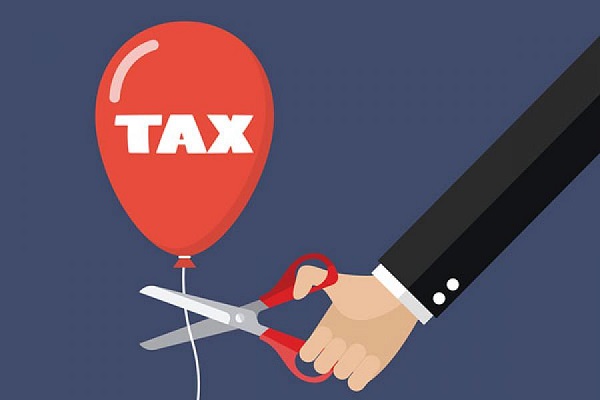Budget 2020: Will pension tax relief be cut for higher earners?
With the Budget one month away, rumours are swirling that higher-rate pension tax relief will be cut.
13th February 2020 10:40
by Kyle Caldwell from interactive investor
With the Budget one month away, rumours are swirling that higher-rate pension tax relief will be cut.

Once again speculation is mounting the government is eyeing up cutting higher-rate pension tax relief in the upcoming Budget, which takes place on 11 March.
Ahead of the November 2018 Budget, rumours swirled that changes to pension tax breaks and allowances, or more specifically a cut to higher-rate pension tax relief, were on the cards.
This did not play out, and neither did suggestions that a more radical change to pensions would be introduced in the form of a flat rate for pension tax relief. This idea has been mooted for some time, with former chancellor George Osborne consulting at length on possible reforms to the tax relief on pension contributions.
According to the Financial Times, chancellor Sajid Javid is weighing up reforms to pension tax relief in order to ease pressure on public finances and to make the tax system “fair and efficient”.
Under consideration is the introduction of a flat rate of pension tax relief set at 20% for all earners – this would negatively impact higher earners as they would no longer receive 40% tax relief on pension contributions.
Other tax reforms under consideration involve inheritance tax, entrepreneur’s relief and capital gains tax.
The Treasury told the Financial Times:
“We don’t comment on speculation. All taxes are held under review and any changes are announced by the chancellor at the Budget.”
The Resolution Foundation, a think tank, has previously called for pension tax relief to be overhauled.
Moreover, the fact that the value of pension tax relief has increased by 30% over the past five years may also force the government’s hand. It is therefore feasible the government will look to reform the existing system in order to control costs and free up cash to be used elsewhere, such as the NHS.
But if pension tax relief is tinkered with or reformed, the Conservative Party risks upsetting its traditional voters.
On the other hand, with an 80-seat majority the government has a mandate to implement changes. In addition, having won a number of working-class Labour strongholds in the Midlands and across the north of England in the general election, the party may look to address a system that favours the wealthy.
Steven Cameron, pensions director at Aegon, cautions that changing pension tax relief would be challenging to implement. He says: “While there are benefits in flat rate relief, when the government considered such changes back in 2015, it found there are many complexities to consider, and unless these are thought through and solved, changes could do more harm than good.
“The three biggest areas of complexity relate to the tax treatment of employer contributions, how to avoid a ‘salary sacrifice loophole’ and how to apply such an approach to defined benefit schemes.
“We urge the Chancellor and his team to avoid going too far too fast and instead to engage with the industry to resolve issues. We also recommend testing any new approach with savers to understand how it might change retirement savings behaviours.”
Sean Jones, a financial planning consultant at James Hambro & Co, comments that “pensions look like the fiscal equivalent of a big, juicy apple hanging within easy reach, just waiting to be plucked. You may want to take a bite while you still can.”
Full performance can be found on the company or index summary page on the interactive investor website. Simply click on the company's or index name highlighted in the article.
This article was originally published in our sister magazine Money Observer, which ceased publication in August 2020.
These articles are provided for information purposes only. Occasionally, an opinion about whether to buy or sell a specific investment may be provided by third parties. The content is not intended to be a personal recommendation to buy or sell any financial instrument or product, or to adopt any investment strategy as it is not provided based on an assessment of your investing knowledge and experience, your financial situation or your investment objectives. The value of your investments, and the income derived from them, may go down as well as up. You may not get back all the money that you invest. The investments referred to in this article may not be suitable for all investors, and if in doubt, an investor should seek advice from a qualified investment adviser.
Full performance can be found on the company or index summary page on the interactive investor website. Simply click on the company's or index name highlighted in the article.
These articles are provided for information purposes only. Occasionally, an opinion about whether to buy or sell a specific investment may be provided by third parties. The content is not intended to be a personal recommendation to buy or sell any financial instrument or product, or to adopt any investment strategy as it is not provided based on an assessment of your investing knowledge and experience, your financial situation or your investment objectives. The value of your investments, and the income derived from them, may go down as well as up. You may not get back all the money that you invest. The investments referred to in this article may not be suitable for all investors, and if in doubt, an investor should seek advice from a qualified investment adviser.
Full performance can be found on the company or index summary page on the interactive investor website. Simply click on the company's or index name highlighted in the article.